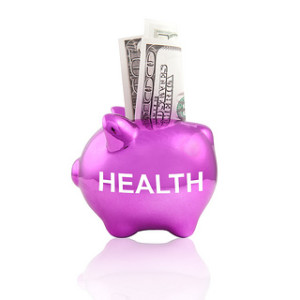
Healthcare Incentive Programs | The Harvard Study
A study done by Harvard Medical School, published this week, looked at a private, South African hospital that has been experimenting with incentive programs to improve patient health outcomes. Could something like this ever work in a U.S. Hospital?
Healthcare Incentive Programs | Get Your Screening, Win a Prize
Imagine going to do your doctor, year after year, and he keeps telling you that, for your health, you really need to have a mammogram (or, if you’re male, a prostate exam). Now, it’s hard enough to schedule your annual visit with your job and your kids- can you really make time for another appointment? What if your doctor told you that if you partake in these preventative services, you’d get a $50 gas card? If you think you’re getting something out of it, would you be more motivated to fit in the appointment?
With preventative services, sometimes it’s hard to see the benefit. It’s healthcare services that you may or may not need – if your exam is normal, you might think, “Gee, all that and there isn’t anything to worry about it.” But if you imagine the reverse, that you didn’t get the exam and something was wrong and it went undetected, then you would say, “Gee, I wish I had just done that exam!”
Healthcare Incentive Programs | Discovery Health, South Africa
The hospital in South Africa is aware that preventative care is not the first priority of many of their patients. As in other hospitals worldwide, preventative care is important to improving overall health quality for populations, and is, of course, an important measure of value in health care.
The incentive program at Discovery Health, the hospital being studied in South Africa, invites patients to pay around $15 a month to be in the incentive program for preventative care. Each time an enrollee participates in a preventative service, like exams, tests or vital measures, they earn points towards rewards – like discounts in the community.
When the program began, just 3% of patients were utilizing preventative services. By the time the incentive program got underway, the rate had risen to 8%. Based on these findings, it stands to reason that incentive programs might be an excellent way to provide an initial boost in utilization of preventative services.
Healthcare Incentive Programs | Coming To A Hospital Near You?
It’s pointed out in the study that this hospital in South Africa serves patients, in terms of access to healthcare and demographics, on par with hospitals in the U.S., which is why this study may act as a good model for implementing such a program in U.S. hospitals. There’s one caveat from this research, however: while there was an increase in utilization of these services, it still did not reach the level that is recommended by medical guidelines. In short, it’s progress, but we’ve still got a long ways to go.
Are such incentive programs on the horizon for the U.S.? In the years to come, could you win an iPhone for having your yearly exams or screenings? Would that incentivize you more than the idea that you are taking good care of your health and your body so that you can live a long happy life? Based on the research, yes: we might be more motivated by incentives than ourselves.
